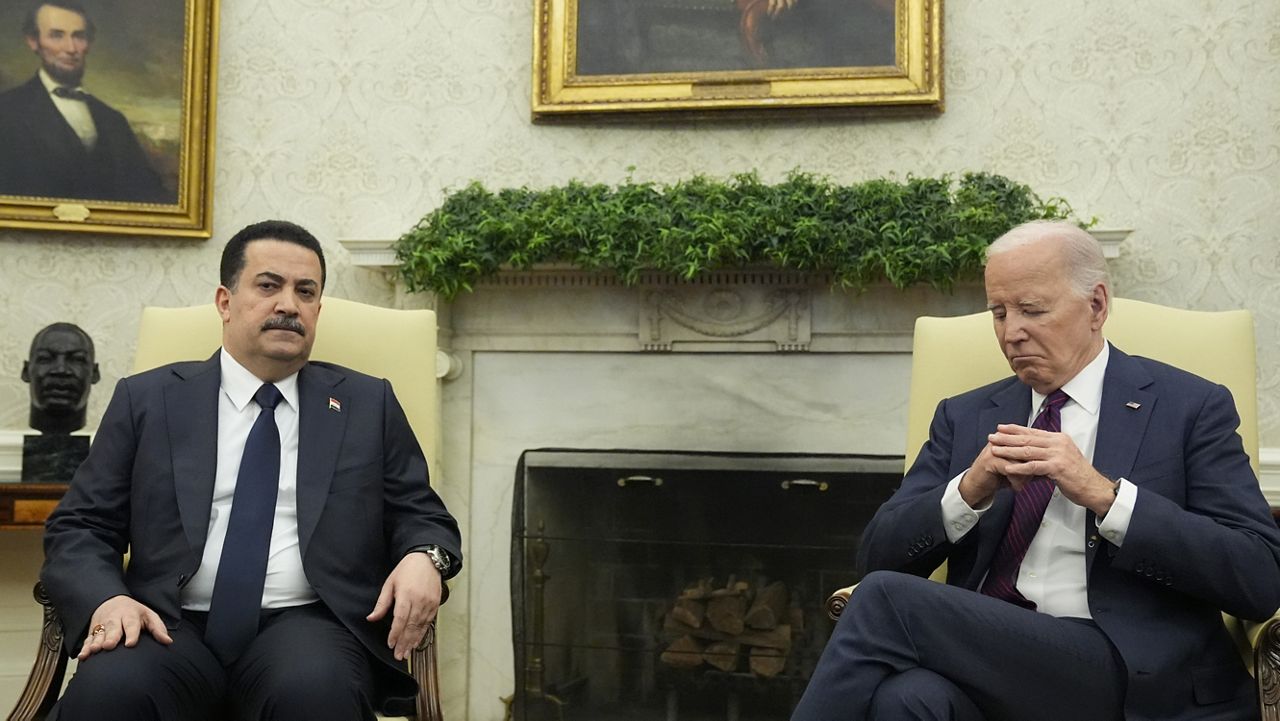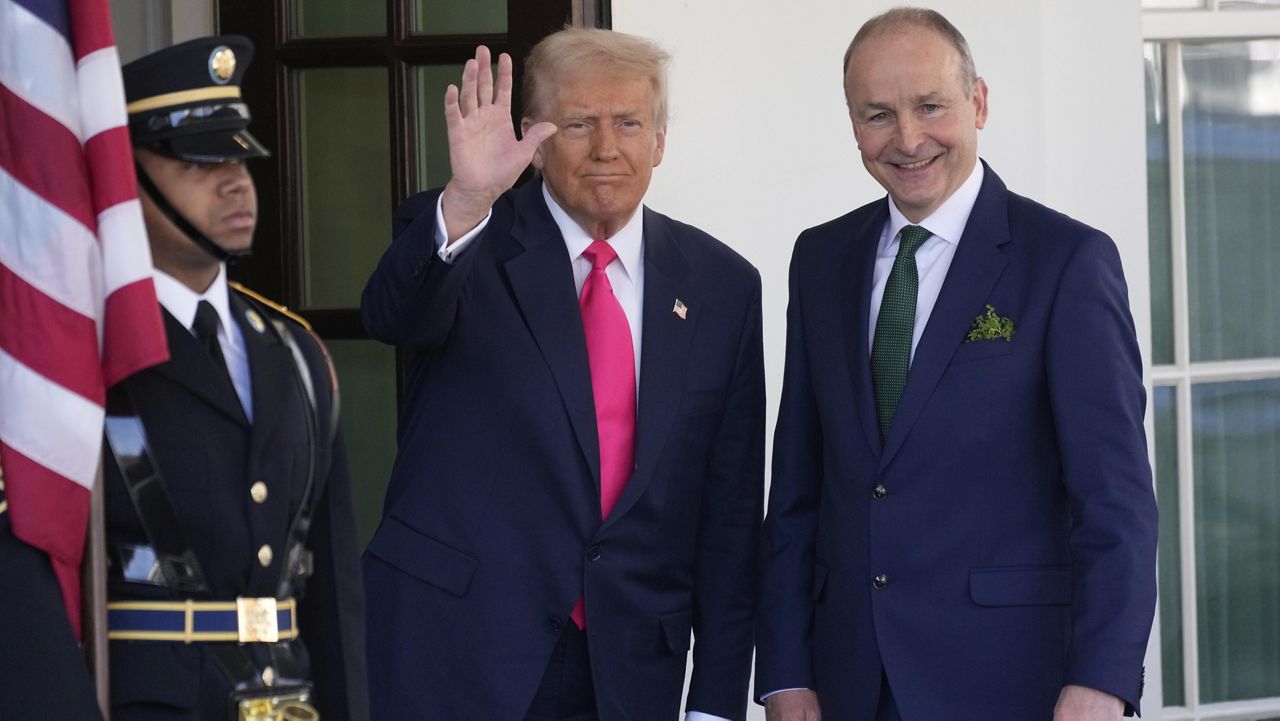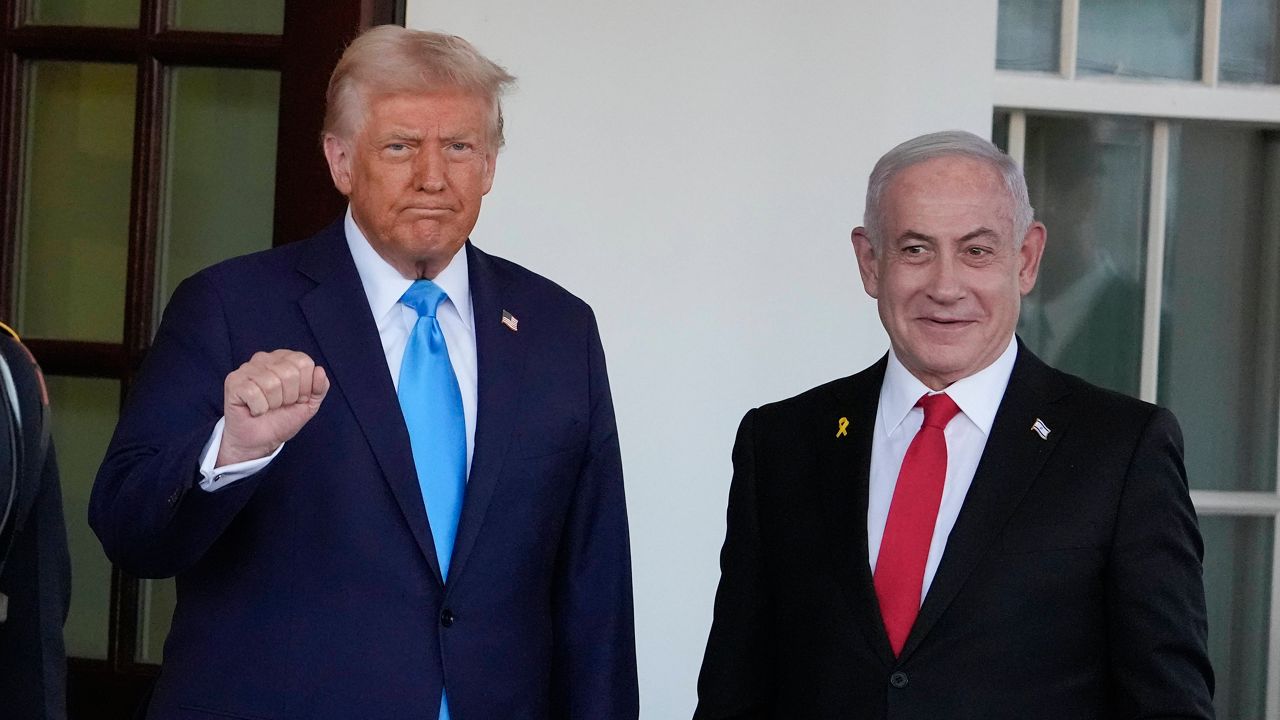The U.S. carried out what it called a “defensive airstrike” on a town south of Baghdad on Tuesday on combatants the military says were attempting to launch drone attacks on U.S. and coalition forces in Iraq, a defense official said.
“U.S. forces in Iraq conducted a defensive airstrike in the Musayib in Babil Province, targeting combatants attempting to launch one-way attack uncrewed aerial systems (OWAUAS),” the defense official said. “Based on recent attacks in Iraq and Syria, U.S. Central Command assessed that the OWAUAS posed a threat to U.S. and Coalition Forces.”
Iraq condemned the attack as “a heinous crime and blatant aggression” that killed “several service members of our security forces from the Popular Mobilization Forces and the injury of others without any justification for this reckless and irresponsible aggressive act.” The PMF is a coalition of primarily Shiite, Iran-backed armed groups that joined in the fight against the Islamic State group after it seized large sections of Iraq in 2014. The PMF operates under the umbrella of Iraqi armed forces, but elements of it have been blamed for attacks on U.S. forces in Iraq previously and some factions have been labeled by the U.S. as terrorist groups.
The PMF said the strike killed four members of the Iranian-backed militia Kataib Hezbollah, which operates within the PMF and is a U.S.-designated terrorist group which has targeted U.S. bases previously. The U.S. defense official did not name the target of the strike nor did they provide casualty data. Iraq said fighter jets from outside Iraq flew into the country to make the strike.
The U.S.-led international coalition nominally remains in Iraq to combat the remnants of the Islamic State, but Iraq’s leaders have been trying to negotiate an end to coalition forces’ presence in the country. In February, Iraq condemned a similar strike in Baghdad that killed high-ranking members of Kataib Hezbollah.
“Despite extensive efforts through political and diplomatic channels… the coalition forces have committed a heinous crime and blatant aggression,” said Iraqi Maj. Gen. Yehia Rasool, a spokesperson for Iraqi Prime Minister Mohammed S. Al-Sudani, said in a statement on Wednesday. “They targeted, with fighter jets coming from beyond the borders, Iraqi security forces sites in northern Babil Governorate at 22:45 on Tuesday, July 30. This attack resulted in the martyrdom of several service members of our security forces from the Popular Mobilization Forces and the injury of others without any justification for this reckless and irresponsible aggressive act.”
Rasool went on to say the strike “can significantly undermine all efforts, mechanisms and framework” of the international effort to combat the Islamic State and “risk dragging Iraq and the entire region into dangerous conflicts and wars.”
The strike was the first by U.S. and coalition forces in months in Iraq and came as tensions in the region were skyrocketing this week. On Tuesday, Israel targeted a leader of Iran-backed Hezbollah in Lebanon’s capital Beirut and, on Wednesday, an airstrike killed Hamas leader Ismail Haniyeh in Iran’s capital Tehran. Israel did not immediately comment on the killing of Haniyeh, but Iran and Hamas blamed Israel and Israel’s military pledged to kill Haniyeh and other Hamas leaders over the group’s Oct. 7 attack on southern Israel that triggered the ongoing war in the Gaza Strip.
There are about 2,500 U.S. troops stationed in Iraq, according to the Pentagon. Reuters reported earlier this month that Iraq is hoping the U.S.-led coalition will begin withdrawing in September with an end date of September 2025.
“I can't predict for you what might happen. But we are both focused on making sure there's not a resurgence of ISIS,” Chairman of the Joint Chiefs of Staff Gen. Charles “CQ” Brown Jr. said at a press briefing last week after meeting with his Iraqi counterpart in Washington. “We'll continue to work through the details of how that transition and number of forces.”
The U.S. Central Command, responsible for U.S. military operations in the region, reported earlier this month that the Islamic State claimed 153 attacks in Iraq and Syria in the first six months of 2024, on pace to double their number of attacks compared to 2023.
Iraqi officials say that they can keep the Islamic State threat under control with their own forces. The talks between the two countries come at a time of increased domestic tensions over the U.S. military presence.
From October to February, an umbrella group of Iran-backed militias calling itself the Islamic Resistance in Iraq launched regular drone attacks on bases housing U.S. troops in Iraq and Syria, which they said was in retaliation for Washington’s support of Israel in the ongoing war in Gaza and were aimed at forcing U.S. forces to withdraw from Iraq.
Those attacks largely halted after three U.S. soldiers were killed in a strike on a base in Jordan, near the Syrian border in late January, prompting U.S. retaliatory strikes in Iraq.
The Associated Press contributed to this report.








